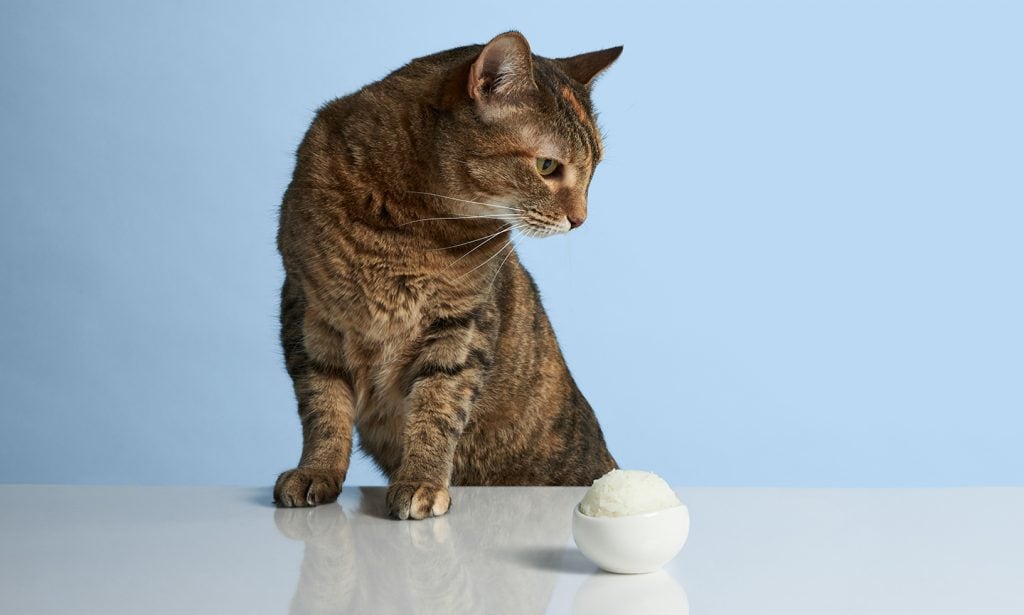Yes, cats can eat rice but it should be given in moderation and cooked without any seasoning or additives. Rice can be a source of carbohydrates for cats, but their primary nutritional requirement is protein which should be provided through a balanced diet of meat-based cat food.
Additionally, rice should not replace the necessary nutrients found in commercial cat food and should only be given as an occasional treat. Introducing rice into a cat’s diet should be done carefully, taking into consideration any existing health issues or dietary restrictions.
Always consult with a veterinarian before making any changes to your cat’s diet. We will explore the topic of whether cats can eat rice and the potential benefits and risks associated with it.
Rice And Feline Nutrition: Understanding The Basics
Cats can eat rice, but it’s not a natural part of their diet. Cats are obligate carnivores, meaning they require a meat-based diet to thrive. While rice can provide carbohydrates, it’s not a necessary component of their nutrition. Cats naturally prefer and require a diet high in animal protein, which supplies essential amino acids and taurine.
Unlike humans, cats do not have the enzymes necessary to break down and utilize plant-based nutrients efficiently. Therefore, excessive rice consumption can lead to nutritional imbalances in cats. It’s important to ensure that their diet primarily consists of high-quality animal proteins to meet their specific dietary needs.
If you have concerns about your cat’s diet, consult with a veterinarian to determine the best nutritional plan for your feline companion.

Credit: be.chewy.com
Is Rice Safe For Cats?
Rice is generally safe for cats to eat, but their digestive system is not designed for it. Cats are obligate carnivores, meaning their bodies require a diet that is primarily meat-based. While rice can provide some nutritional benefits, it should only be given in small amounts as an occasional treat.
Feeding cats too much rice can lead to digestive upset, including diarrhea and gas. Additionally, rice lacks essential nutrients such as taurine, which is crucial for feline health. It is important to consult with a veterinarian before introducing rice or any other human food into a cat’s diet.
Ultimately, cats thrive on a balanced and species-appropriate diet consisting of high-quality protein sources, such as meat.
Rice In Commercial Cat Food: What To Look For
Cat owners often wonder if it’s safe for their furry friends to eat rice. When it comes to rice in commercial cat food, reading the labels is crucial. By doing so, you can easily identify the rice ingredients. But it doesn’t end there.
Evaluating the quality of rice in cat food is equally important. Look for indicators of high-quality rice, such as whole grain or brown rice. Avoid cat food that contains excessive amounts of filler ingredients like rice bran or rice flour.
Opt for cat food brands that prioritize the nutritional needs of your feline companion. Remember, providing a balanced diet is essential for a cat’s overall health and well-being.
Homemade Rice Diets For Cats: Pros And Cons
Feeding homemade rice diets to cats can have both advantages and disadvantages. Many cat owners opt for rice-based cat food recipes due to their convenience and affordability. These recipes often consist of cooked rice mixed with other ingredients to create a balanced meal for cats.
However, it is important to follow feeding guidelines for homemade rice diets to ensure that cats receive all the necessary nutrients. It is also crucial to consider the risks and potential drawbacks of such diets. Cats have specific dietary needs, and a rice-based diet may not fulfill all of them.
It is important to consult with a veterinarian before incorporating homemade rice diets into a cat’s regular feeding routine.
Alternatives To Rice In A Cat’S Diet
Rice may not be the best source of carbohydrates for cats. Instead, consider other options. Cats can benefit from grains or grain-free alternatives in their nutrition. Variety is crucial in their diet, ensuring they get the necessary nutrients. Opt for suitable sources of carbohydrates that suit their digestive system.
Consulting A Veterinarian: Recommendations For Your Cat’S Nutrition
Consulting a veterinarian is crucial when it comes to your cat’s nutrition. Seeking professional advice ensures that you meet your feline friend’s dietary needs adequately. Each cat is unique and may require a customized nutrition plan based on their individual requirements.
A veterinarian can provide guidance on what foods are safe for cats and help determine if rice is suitable for your pet. They can assess your cat’s health, age, weight, and any medical conditions to recommend the right diet. While cats are obligate carnivores, meaning they thrive on a meat-based diet, small amounts of rice can be included as part of a balanced meal.
However, it is best to consult with a professional to ensure your cat’s nutritional needs are met properly.
Conclusion
Overall, it is essential to consider several factors before incorporating rice into a cat’s diet. While rice can provide a source of carbohydrates and nutrients, it should not be the main component of their meals. Cats are obligate carnivores, meaning they require a meat-based diet to thrive.
Introducing rice should be done sparingly and in moderation, taking into account your cat’s specific dietary needs and any preexisting health conditions. Additionally, it is crucial to cook the rice thoroughly and remove any seasoning or additives that could be harmful to your feline companion.
Regular consultation with a veterinarian is advisable to ensure your cat’s nutritional requirements are adequately met. Opting for commercial cat food that provides a balanced diet tailored to your pet’s needs is typically the safest and most convenient option. Remember, the well-being of your furry friend should always be the primary concern when making dietary choices for them.
